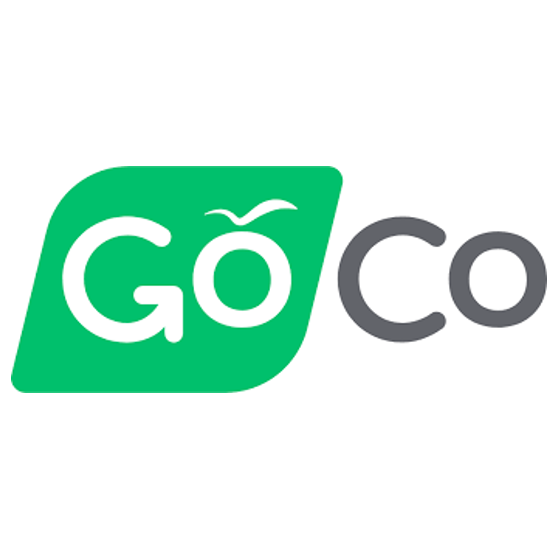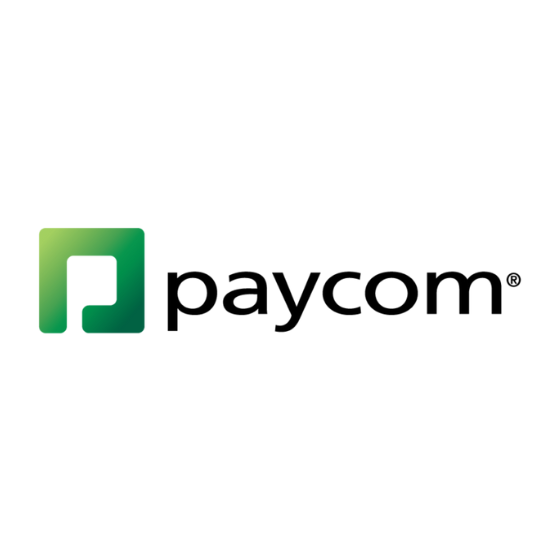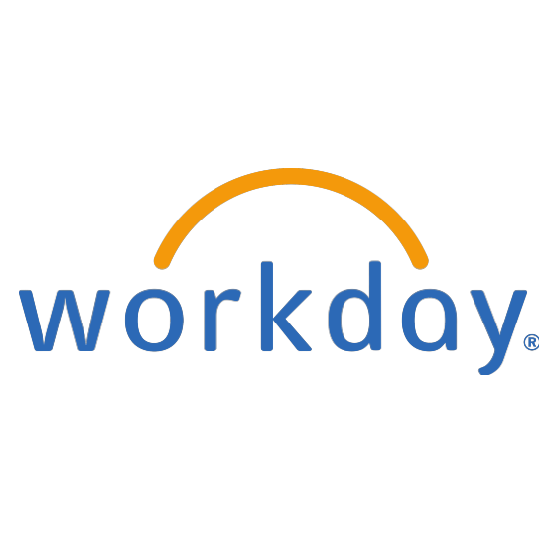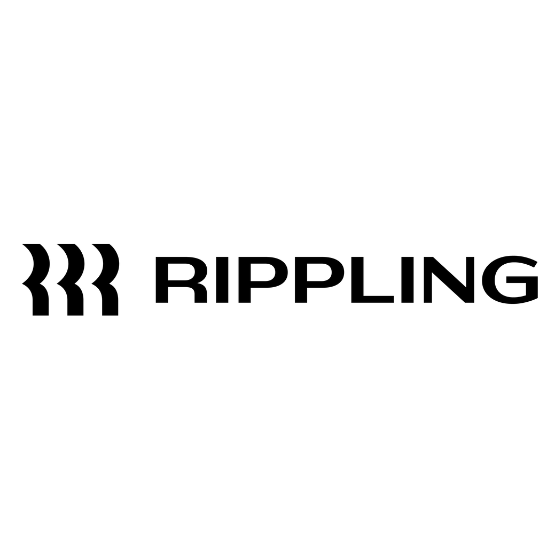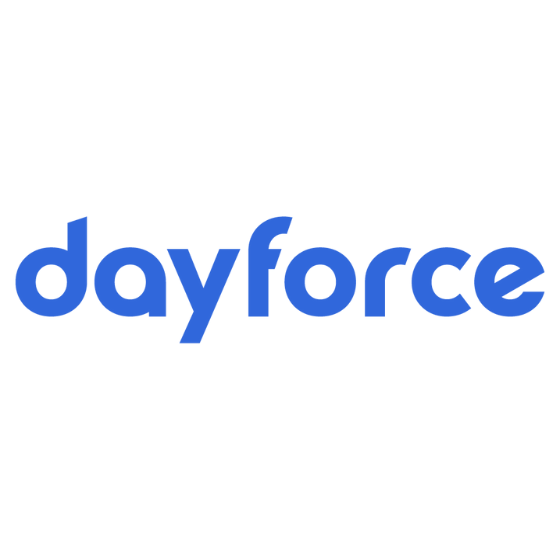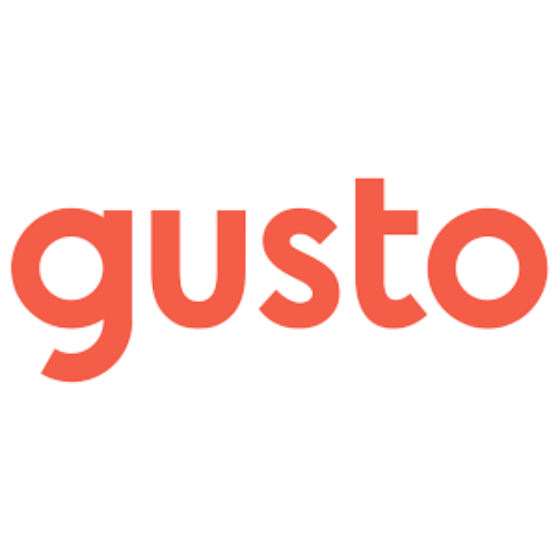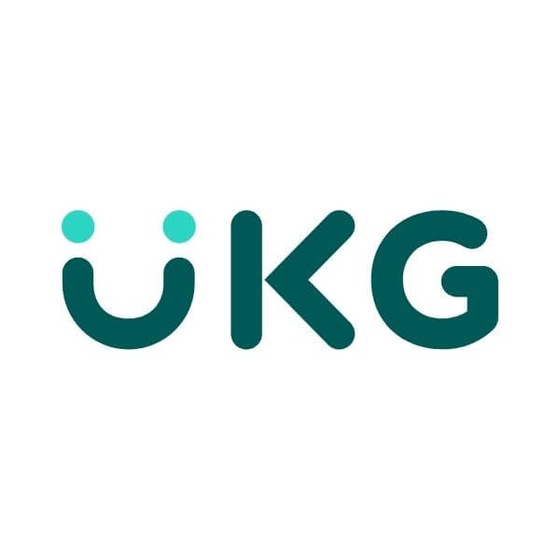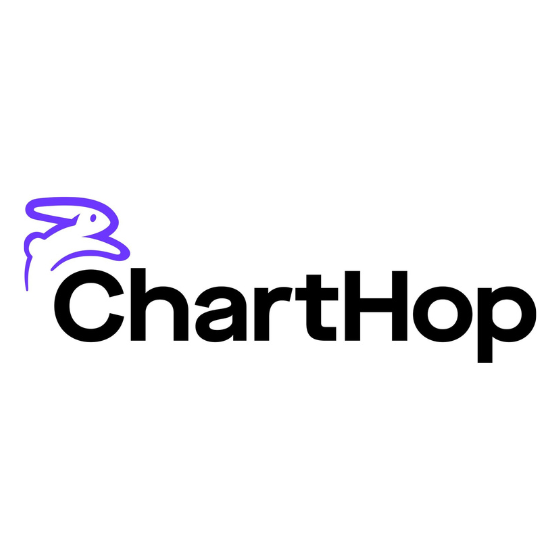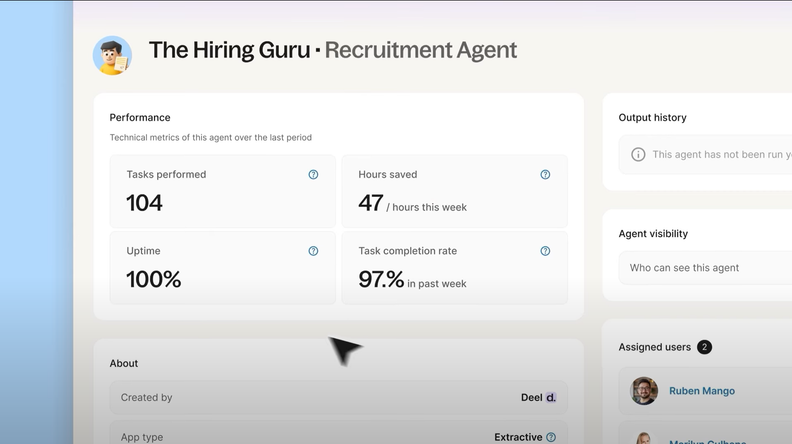Best Factorial Alternatives Shortlist
Here's my pick of the 10 best software from the 20 tools reviewed.
If you're using Factorial but running into limitations—like clunky workflows, limited customization, or features that don’t scale with your team—you’re not alone. Many HR professionals reach a point where their current software just can’t keep up.
HR platforms should make your work life easier by automating tasks like onboarding, time-off tracking, performance reviews, and compliance. If Factorial isn’t doing that for you, it’s time to explore better options.
As an HR software expert with experience reviewing numerous tools, I’ve researched dozens of platforms to find the best alternatives. In this article, I’ll share my top picks that stand out against Factorial, so you can find a solution that truly fits your needs.
What is Factorial?
Factorial is a business management software designed to simplify human resource management. It's commonly used by HR professionals and small to medium-sized business owners who need efficient tools for handling employee data and HR processes.
If offers features like onboarding and offboarding, employee time tracking, payroll management, and performance reviews support your team's HR tasks, making them more manageable. It also includes a finance module with project management and expense tracking tools, as well as e-signature capabilities to increase administrative efficiency.
Overall, Factorial offers a user-friendly platform that helps teams manage their HR needs effectively.
Best Factorial Alternatives Summary
This comparison chart summarizes pricing, trial, and demo details for my top Factorial alternative selections to help you find the best option for your budget and business needs.
| Tool | Best For | Trial Info | Price | ||
|---|---|---|---|---|---|
| 1 | Best for international hiring support | Free trial + demo available | From $29/month | Website | |
| 2 | Best for detailed leave management | 14-day free trial | From $22/user/month | Website | |
| 3 | Best for customer service | Free demo available | Pricing upon request | Website | |
| 4 | Best for employee self-service | Free demo available | Pricing upon request | Website | |
| 5 | Best for learning and employee development | 14-day free trial available | From $1,800/year (up to 25 users) | Website | |
| 6 | Best for global enterprise-level HR | Free demo available | Pricing upon request | Website | |
| 7 | Best for combined HR and IT functions | Free demo available | Pricing upon request | Website | |
| 8 | Best for customizable enterprise HR | Free demo available | Pricing upon request | Website | |
| 9 | Best for small business payroll for US companies | Free demo available | From $40/month + $6/user/month | Website | |
| 10 | Best for integrated talent management | Free demo available | Pricing upon request | Website |
Why Trust Our Software Reviews
We’ve been testing and reviewing HR management software since 2019. As HR professionals ourselves, we know how critical and difficult it is to make the right decision when selecting software. We invest in deep research to help our audience make better software purchasing decisions.
We’ve tested more than 2,000 tools for different HR management use cases and written over 1,000 comprehensive software reviews. Learn how we stay transparent & check out our software review methodology.
-

Rippling
Visit WebsiteThis is an aggregated rating for this tool including ratings from Crozdesk users and ratings from other sites.4.8 -

Paylocity
Visit WebsiteThis is an aggregated rating for this tool including ratings from Crozdesk users and ratings from other sites.4.5 -

ChartHop
Visit WebsiteThis is an aggregated rating for this tool including ratings from Crozdesk users and ratings from other sites.4.3
Best Factorial Alternatives Reviews
Below are my detailed summaries of the best Factorial alternatives that made it onto my shortlist. My reviews offer a detailed look at the key features, pros & cons, integrations, and ideal use cases of each tool to help you find the best one for you.
Deel is a global HR platform built to help businesses hire, pay, and manage teams in over 150 countries. It’s designed for companies navigating cross-border HR operations and compliance, offering services like contractor management, payroll, and visa support from one interface.
Why Deel is a good Factorial alternative: I picked Deel because it offers a platform-enabled consulting model that combines HR software with local legal and compliance guidance. Compared to Factorial, Deel provides deeper support for international hiring, including contract customization and payroll automation for both employees and contractors.
What stood out most was the ability to manage country-specific employment laws and benefits through Deel’s in-house experts and partners. If you’re scaling across borders, Deel gives you access to global infrastructure without needing local entities.
Standout features & integrations:
Features include a global HRIS (Human Resource Information System) that helps you track time off, expenses, and team performance in one place. Its contractor management tool allows you to onboard and pay freelancers across 150+ countries using bulk payments and flexible methods.
You can also use Deel to ship equipment worldwide, provide co-working access via WeWork, and automate documentation collection for compliance.
Integrations include QuickBooks, Xero, Lever, Workable, Slack, Google Workspace, Greenhouse, NetSuite, Expensify, HiBob, Okta, Ashby, BambooHR, Azure Active Directory, SAP, UKG, and Workday.
Pros and cons
Pros:
- Good for expanding internationally
- Strong emphasis on localized compliance
- Support for local taxes, benefits, and payroll management
Cons:
- May have unnecessary offerings if you have no global expansion plans
- Limited IT asset oversight
New Product Updates from Deel
Introducing Deel AI Workforce
Deel has launched the AI Workforce, a set of specialized agents designed to handle repetitive HR, payroll, and compliance tasks with speed and accuracy. These AI agents don’t just assist—they execute tasks from start to finish. For more information, visit Deel's official site.
Breathe HR is a cloud‑based HR management platform made for small and mid‑sized teams. It helps you handle core HR tasks like tracking holidays, sickness, training, expenses, rotas and performance—all from one central place.
Why Breathe HR is a good Factorial alternative: I picked Breathe HR because it offers comprehensive time tracking and leave management features. These functionalities ensure your team can track work hours and manage leave requests, which are crucial for maintaining productivity and ensuring employee satisfaction. Additionally, Breathe HR's recruitment tools let you create and share job vacancies and monitor applications.
The software also stands out with its performance monitoring capabilities. With these tools, you can track employee progress and conduct performance evaluations, helping your team identify areas for improvement and recognize achievements.
Standout features & integrations:
Features include document management that allows your team to store and organize important HR documents securely. The platform also provides a dedicated employee database to ensure GDPR compliance, safeguarding sensitive employee information.
Integrations include AdviceSheet, Harriet, Hireful, LivePay, Mintago, Pleo, Posture People, WeThrive, and Xero Payroll.
Pros and cons
Pros:
- Self‑service portal boosts autonomy
- Great reporting tools and dashboard visibility
- Good leave management features
Cons:
- Could offer more platform customization options
- Recruitment and time and attendance are paid add-ons
GoCo is an all-in-one HR platform designed for small and mid-sized businesses. It helps teams manage core HR tasks like onboarding, benefits administration, payroll, and compliance in one place.
Why GoCo is a good Factorial alternative: GoCo is a good choice for small businesses because they offer dedicated Customer Success Managers for every customer, meaning you’ll have solid support in place to set their system up according to your needs.
I also appreciate how CoGo offers modular pricing, meaning you can save money by only paying for the modules you actually need.
Standout features & integrations:
Features include modules for recruiting (including an applicant tracking system and digital offer letters), onboarding, and time and attendance.
There's also a talent management module, including a performance review tool, to help track goals and feedback throughout the year.
In addition, the system offers digital document management tools that lets you send, sign, and store HR paperwork online. Plus, you can build custom workflows to match how your team actually works, without needing to code.
Integrations include QuickBooks, ADP, Gusto, Slack, Google Workspace, Microsoft 365, Zoom, Paychex, and Zapier.
Pros and cons
Pros:
- Efficient time-off tracking
- Secure document storage
- Customizable workflows
Cons:
- Limited mobile app features
- Limited advanced reporting
Paycom is a cloud-based software that helps businesses manage payroll and HR tasks in one place. It covers the entire employee lifecycle, handling everything from hiring to retirement within a single tool.
Why Paycom is a good factorial alternative: Paycom offers an all-in-one software platform that simplifies HR processes by integrating payroll processing, employee self-service, and document management all from one interface.
They also offer a unique employee-managed payroll feature called “Beti”, which actively involves employees in the payroll process. This approach reduces administrative burdens and increases data accuracy by allowing employees to double-check their own payroll and HR information before payday.
This unique approach to employee involvement makes it a compelling choice for those seeking an alternative to Factorial.
Standout features & integrations:
Features include payroll processing, compliance management, real-time reporting and analytics, and a document management feature that stores and organizes employee records securely.
The software solution also offers mobile access, allowing employees to manage their information from anywhere.
Integrations include QuickBooks, ADP, Workday, SAP, Oracle, Microsoft Dynamics, Sage, BambooHR, and Salesforce.
Pros and cons
Pros:
- Secure document management
- Strong employee self-service features
- Integrated talent management tools
Cons:
- Basic reporting features
- Limited customization options
Workleap is an HR software platform designed to help HR teams focus on enhancing employee engagement and productivity. It offers tools to streamline HR functions, making it suitable for organizations adapting to hybrid and remote work environments.
Why Workleap is a good Factorial alternative: Workleap's focus on employee engagement and learning and development sets it apart from Factorial. Specifically, Workleap offers an integrated learning management system (LMS), which supports employee training and development, enhancing skills and career growth.
You can also easily build custom courses using AI-backed course generator tools, or rely on existing e-learning content which is already pre-loaded into the system.
Standout features & integrations:
Features include employee engagement surveys that help your team gather feedback and improve workplace culture, and interactive org charts that provide a clear view of team structures and roles.
The platform's automated onboarding helps new hires integrate smoothly, while skills development tracking supports continuous employee growth.
Lastly, Workleap’s performance management tools help teams track and improve employee performance, and include customizable workflows.
Integrations include Slack, Microsoft Teams, Google Workspace, Zoom, LinkedIn, Workday, BambooHR, QuickBooks, Salesforce, and ADP.
Pros and cons
Pros:
- Skills development tracking
- Automated onboarding processes
- Effective performance management
Cons:
- Limited mobile app features
- Basic analytics features
Workday is a cloud-based human capital management (HCM) software solution designed for medium to large enterprises. It offers tools for managing HR, payroll, and talent management needs within a single platform.
Why Workday is a good Factorial alternative: Workday provides AI integration that enhances decision-making and automates routine HR tasks. Its predictive analytics offer insights into workforce trends, helping you make informed decisions.
With built-in dashboards, you can visualize key workforce metrics without manual reporting. The platform also includes sentiment analysis, allowing you to measure employee well-being and engagement over time.
Standout features & integrations:
Features include workforce planning tools that help you anticipate and prepare for future staffing needs, including talent shortages. It also includes AI-powered analytics that help detect workforce gaps before they become an issue.
The compensation management feature, which incorporates global benchmarking data, helps you manage employee pay and benefits efficiently, across all your operations.
Lastly, their integrated learning management system supports employee development and links training initiatives to skill development.
Integrations include Salesforce, Microsoft Azure, Google Cloud, ServiceNow, Slack, Okta, Box, Adobe, IBM, and SAP.
Pros and cons
Pros:
- Scalable for large enterprises
- Advanced compensation management
- Comprehensive talent management
Cons:
- Steeper learning curve
- Complex initial setup
Rippling is a unified HR and IT management platform designed for small to medium-sized businesses. It allows teams to manage payroll, benefits, and employee devices from a single interface.
Why Rippling is a good Factorial alternative: Compared to Factorial, Rippling stands out because they built app and device management (basic IT) into their HR platform.
You can remotely manage and protect employees’ devices (laptops, smartphones, tablets) as well as easily manage workforce apps like Google Workspace, Slack, and Office 365.
Rippling's integration of HR and IT functions into one system provides a streamlined experience compared to Factorial.
Standout features & integrations:
Features include onboarding workflows that automate the setup process for new employees, ensuring a smooth transition, and time and attendance tracking, which helps you monitor employee hours and manage schedules.
Its payroll feature ensures accurate and timely payments, including across borders if needed, while the benefits administration allows you to manage employee benefits easily.
Lastly, their reporting and analytics feature provides insights into HR and IT metrics, aiding in strategic planning.
Integrations include QuickBooks, Slack, Microsoft Office, Google Workspace, Salesforce, Dropbox, Zoom, Asana, GitHub, and Okta.
Pros and cons
Pros:
- Insightful reporting and analytics
- Efficient device management
- Unified HR and IT management
Cons:
- Initial setup complexity
- Steeper learning curve
Dayforce is a comprehensive human capital management platform designed to help large enterprises to manage their workforce. It provides payroll, workforce management, and talent management solutions all in one place.
Why Dayforce is a good Factorial alternative: Dayforce offers a continuous payroll feature that ensures accurate processing and compliance, while workforce management allows you to optimize scheduling and labor costs.
Dayforce also offers advanced workforce analytics, providing HR teams with insights into workforce trends such as absenteeism and performance. Plus, their compliance management tool ensures adherence to labor laws and regulations, reducing risk for your team.
Its workforce management features, in particular, makes it a strong alternative to Factorial.
Standout features & integrations:
Features include a benefits administration module that helps you manage and deliver employee benefits effectively, with deductions carried over to payroll to reduce administrative work.
Dayforce also offers talent management tools that support recruitment, learning, and employee development.
Integrations include Salesforce, SAP, Oracle, Microsoft Dynamics, ADP, Kronos, QuickBooks, Workday, BambooHR, and LinkedIn.
Pros and cons
Pros:
- Scalable for large enterprises
- Effective compliance management
- Advanced analytics capabilities
Cons:
- Steeper learning curve
- Complex initial setup
Gusto is a cloud-based HR management tool tailored for small to medium-sized businesses. It's used by HR teams to manage payroll, benefits, and employee onboarding efficiently.
Why Gusto is a good Factorial alternative: Gusto focuses on making payroll easy for small U.S. companies. You can run payroll automatically, handle tax filings, and pay employees by direct deposit.
It also helps you manage health benefits and workers’ comp in one place. In addition, you can sync your current 401(k) plan details directly to Gusto, and even integrate your broker into their HR solution so they can manage your benefit plans on your behalf.
If you're mainly looking for a tool to manage US-based payroll and benefits, Gusto keeps things simple and focused.
Standout features & integrations:
Features include hiring and onboarding tools that let you send offer letters and collect e-signatures. You can track time and set paid time off policies that sync with payroll. There’s also an employee self-service portal so your team can update their own info and view pay stubs.
Integrations include QuickBooks, Xero, FreshBooks, Clover, TSheets, Deputy, When I Work, Boomr, and Expensify.
Pros and cons
Pros:
- User-friendly onboarding
- Efficient benefits management
- Customizable payroll workflows
Cons:
- No mobile app
- Basic reporting capabilities
UKG Pro is a comprehensive HR and payroll solution designed to help large enterprises manage their workforce effectively. It provides tools for payroll, talent management, and employee experience enhancement.
Why UKG Pro is a good Factorial alternative: UKG Pro offers integrated talent management, combining recruiting, onboarding, and performance management into one platform.
It also offers succession planning tools that help your team identify and nurture talent within the organization, making it a valuable tool for talent-driven companies.
Overall, UKG Pro's focus on providing an all-encompassing talent management experience makes it an appealing choice over Factorial.
Standout features & integrations:
Features include payroll management, recruiting and onboarding, and performance management tools that support continuous employee growth and development.
Their employee engagement tools help you measure and improve workplace satisfaction, and their workforce analytics feature provides insights into HR metrics, aiding in strategic decision-making.
Integrations include Salesforce, Microsoft Azure, Google Workspace, SAP, Oracle, Workday, ADP, QuickBooks, Slack, and LinkedIn.
Pros and cons
Pros:
- Scalable for large enterprises
- Detailed workforce analytics
- Integrated talent management
Cons:
- Limited customization options
- Complex initial setup
Other Factorial Alternatives
Here are some additional Factorial alternatives that didn’t make it onto my shortlist, but are still worth checking out:
- BambooHR®
For ease of use
- Paycor
For mid-sized frontline workforces
- Employment Hero
For Canadian HR and payroll
- HiBob
For improving employee engagement and company culture
- ADP Workforce Now
For payroll compliance
- Lattice
For collecting employee feedback
- Mitratech Perform
For performance reviews
- Greenhouse
For talent acquisition
- Collage
For Canadian businesses
- Workable
For recruitment and hiring
Selection Criteria for Factorial Alternatives
When selecting the best Factorial alternatives to include in this list, I considered common buyer needs and pain points related to HR management products, like scalability and data compliance. I also used the following framework to keep my evaluations structured and fair:
Core Functionality (25% of total score): To be considered for inclusion in this list, each solution had to fulfill these common use cases:
- Manage employee data
- Process payroll
- Handle benefits administration
- Track time and attendance
- Support performance management
Additional Standout Features (25% of total score): To help further narrow down the competition, I also looked for unique features, such as:
- AI-driven insights
- Customizable workflows
- Integrated talent management
- Multi-currency payroll processing
- Advanced analytics and reporting
Usability (10% of total score): To get a sense of the usability of each system, I considered the following:
- Ease of navigation
- Intuitive interface
- Customization options
- Mobile accessibility
- Speed and performance
Onboarding (10% of total score): To evaluate the onboarding experience for each platform, I considered the following:
- Availability of training videos
- Access to templates
- Interactive product tours
- Supportive chatbots
- Webinars and live demos
Customer Support (10% of total score): To assess each software provider’s customer support services, I considered the following:
- Availability of 24/7 support
- Response time
- Access to a knowledge base
- Live chat availability
- Dedicated account managers
Value For Money (10% of total score): To evaluate the value for money of each platform, I considered the following:
- Pricing transparency
- Subscription flexibility
- Feature-to-cost ratio
- Discounts for annual billing
- Free trial availability
Customer Reviews (10% of total score): To get a sense of overall customer satisfaction, I considered the following when reading customer reviews:
- Overall satisfaction ratings
- Feedback on reliability
- Comments on ease of use
- Responsiveness of customer support
- User recommendations
Using this assessment framework helped me identify the Factorial competitors that go beyond basic requirements to offer additional value through unique features, intuitive usability, smooth onboarding, effective support, and overall value for price.
Why Look For A Factorial Alternative?
While Factorial is a good choice of HR system, there are a number of reasons why some users seek out alternative solutions. You might be looking for a Factorial alternative because…
- You need more advanced reporting features
- Your team requires better customization options
- You're expanding beyond Factorial's geographic coverage
- You want more integration with existing tools
- Your team needs a more scalable solution
- You're seeking enhanced security compliance
If any of these sound like you, you’ve come to the right place! My list contains several HR systems that are better suited for teams that are facing these challenges with Factorial and are looking for a better solution.
Factorial Key Features
Here are some of the key features of Factorial, to help you compare and contrast what alternative solutions offer:
- Time management: Tools for managing employee time-off requests, tracking work hours, and scheduling shifts.
- Talent management: Features for employee performance tracking, talent acquisition, onboarding, training management, and goal tracking.
- Payroll: Centralized payroll preparation, electronic signatures for documents, and integration with payroll providers.
- Finance: Management of employee and company expenses, along with project management capabilities.
- Document management: Secure storage and management of documents, including digital signatures and access control.
- Employee portal: A platform for employees to manage their time, access personal documents, and stay updated on company events.
- Reports and analytics: Customizable reporting tools to analyze employee performance and productivity.
- Mobile app: Allows users to manage HR tasks on-the-go, including clocking in/out and submitting time-off requests.
- Organizational chart: Automatically updated charts to visualize team structure and roles.
What's Next?
To remain up to date on all the latest in people management, subscribe to our newsletter for leaders and managers. You'll receive insights and offerings tailored to leaders and HR professionals straight to your inbox.




